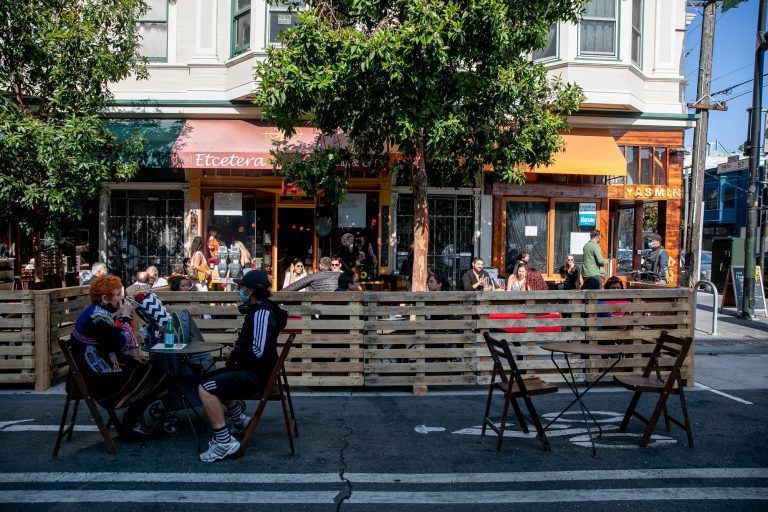Preview:
The state is allowing more street alcohol sales and food sales at cannabis lounges. Supporters say the laws will boost downtown economies.
Starting Jan. 1, alcohol and cannabis sales could increase in parts of California thanks to two new laws aimed at increasing foot traffic in downtown areas, which have yet to fully recover from the pandemic of COVID-19.
Senate Bill 969authored by the State Senator. Scott Weinerwill allow local governments to designate “entertainment zones,” where bars and restaurants can sell alcoholic beverages to people on the streets and sidewalks.
Some organizations, like the California Alcohol Policy Alliance, oppose SB 969 because it could contribute to drunk driving crashes and increased alcohol-related death rates.
Governor Gavin Newsom signed a similar bill in 2022, but it was limited to San Francisco. In September, the city experimented with an Oktoberfest entertainment zone and reported foot traffic at least 10 times that of the 2023 celebration.
“Getting people out into the streets to have fun is essential for communities across our state to recover from the pandemic,” Wiener, a San Francisco Democrat, said in a statement.
There is still broader economic unease among business leaders and Californians. concerned about the cost of living. Newsom has embarked on a job tour.
AB 1775 legalizes Amsterdam-style cannabis cafes, allowing lounges to also sell food and drinks that are not pre-packaged. After opposition from the American Heart and Lung Association and Newsom’s veto of a similar bill in 2022, AB 1775 includes additional protections for workers from second-hand smoke.
“Many people want to enjoy legal cannabis in the company of other people,” bill author, Assembly member Matt Haneyalso a Democrat from San Francisco, said in a statement. “And many people want to do it while sipping coffee, eating a sandwich or listening to music. There is no doubt that cannabis cafes will bring enormous economic, cultural and creative opportunities and benefits to our state.
This story was written by a former CalMatters political intern Jenna Peterson.



